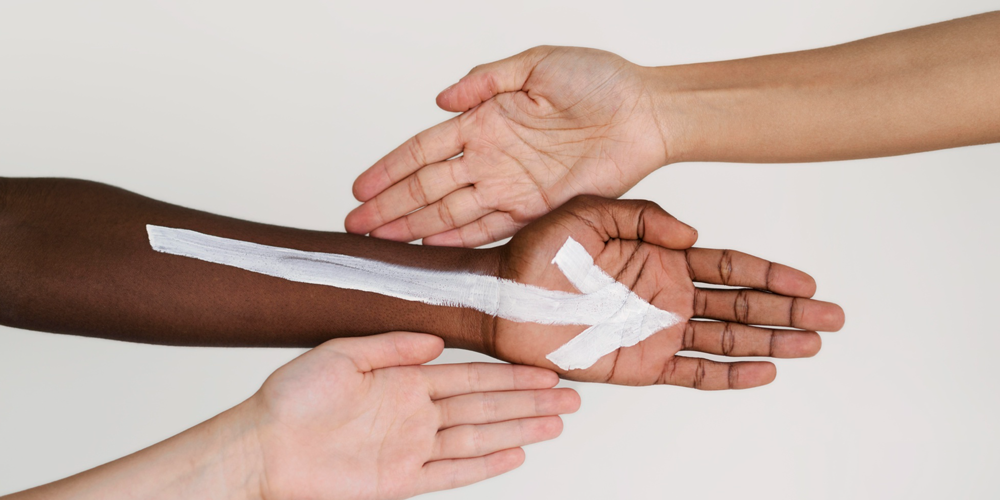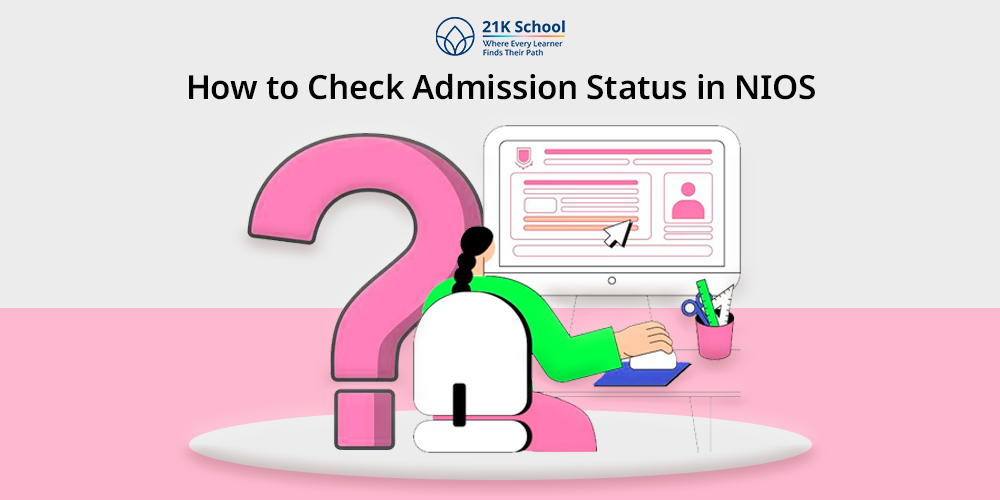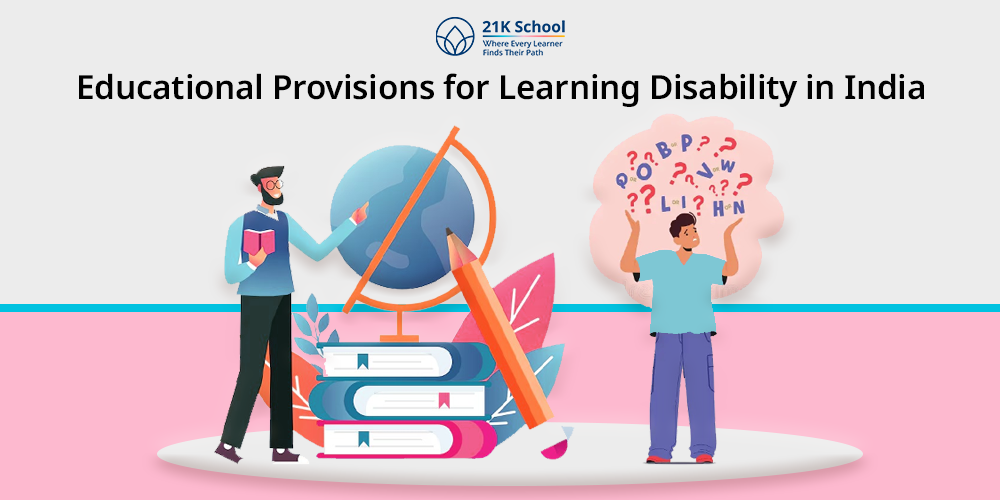
Racism is the practice of giving people of different races unequal chances and results based on systems, policies, behaviors, and attitudes. Discrimination in words or deeds alone does not constitute Racism.
It happens when the ability to discriminate against, persecute, or restrict the rights of others coexists with this prejudice, whether it be institutional or personal.
Table of Contents
What is Racism?
Racism can be understood as a discrimination or bias towards individuals due to some differences, such as behavioural, physical, race, ethnicity, religion, caste, gender, etc.
Racism is a belief of persons towards others which causes them to discriminate against people based on race and ethnicity.
Racism is a very common problem even in the 21st century that occurs in every place, schools, workplaces, society, institutions, etc.
Even racial problems in schools are a common problem that hinders their learning processes, and due to this, it becomes tough for them to communicate with others.
Racial problems occur due to various reasons such as laws, policies, governmental rules, ideologies, beliefs, etc. Stops people from expressing their justice, dignity and equality.
Racism can be seen in the form of harassment, bullying, unequal treatment, violence, and poor behaviour.
Racism is not limited only to adults but also to children; it hampers students’ learning potential and impacts their holistic education.
Racial issues disturb students’ cognitive development as well as impact children’s mental health.
Schools and governments can use effective strategies to eradicate racial problems in schools and promote a positive learning environment.
Background
Since the beginning of European colonization in 1788, race and racism have played a significant role in the structure of Australian society.
Aboriginal and Torres Strait Islander peoples, considered the First Peoples of Australia, have suffered the worst effects of European colonization and are particularly vulnerable to Racism.
The colonization process and the underlying ideologies still influence Australian culture today.
Racism evolves and develops over time, having varying effects on various societies and escalating toward multiple groups at different points in history. The rise in bigotry against Asian and Asian-Australian individuals during the COVID-19 outbreak illustrates this.
Racism encompasses laws, regulations, philosophies, and other restrictions that impede people from enjoying justice, dignity, and equality due to their race.
It may manifest as intimidation, violence, verbal or physical abuse, or harassment. Nevertheless, Racism also occurs in systems and institutions that function unfairly and unequally.
Historical Origin
Racism occurs when one historical or ethnic collectivity strives to control, exclude, or eradicate another due to distinctions that they perceive to be innate and unchangeable.
During the contemporary era, an ideological foundation for overt Racism had a singular culmination in the West. There is no conclusive proof of Racism in other civilizations or Europe before the Middle Ages.
Perhaps the earliest indication of a racist worldview was the association of Jews with the devil and witchcraft in the popular imagination of the thirteenth and fourteenth centuries.
When Jews who had converted to Christianity and their descendants were the targets of a pattern of discrimination in the sixteenth century in Spain, such sentiments received official legitimacy.
During the Renaissance and Reformation, Europeans began interacting more with individuals with darker skin tones in Africa, Asia, and the Americas and began passing judgment on them.
Slave traders and enslavers occasionally took a verse from the book of Genesis as their justification for enslaving Africans, even though the official rationale for doing so was that they were heathens.
They claimed that Ham’s purported black progeny would be “servants unto servants” due to a sin he committed against his father, Noah.
Black servitude moved from religious status to something resembling race when Virginia decided in 1667 that converted enslaved people might be maintained in bondage, not because they were heathens but because they had heathen ancestry.
Laws prohibiting the union of whites and blacks and discriminating against the mixed progeny of sham unions were enacted in English North America beginning in the late seventeenth century.
Such regulations implied that Blacks were inherently alien and inferior without explicitly declaring so.
A humanist or scientific notion of race emerged during the Enlightenment, moving the conversation away from the Bible’s insistence on the fundamental unity of the human race.
Humans were categorized into three to five races in the eighteenth century by ethnologists who started to view them as a component of the natural world and generally regarded them as variations of single humankind.
How has Racism Evolved?
Racism has evolved through a wide range of specific times. The beginning of racism can be seen in the 19th century and spread to every part of the world.
During the 19th century, many political leaders thought that every society had some ethnic aspects.
However, racism has a very old history back to the 17th century where racism started its causes. Here you can check the evolution of racism mentioned below.
1. Racism in the 15th Century
Racism was first seen in the late 15th century, when some black people became inhabitants of Europe. During the 15th century, it is seen that 10% of the population were black people living in Europe.
However, at that time, the term race was not so popular and was used to designate a lineage, a genealogy. At the end of the 15th century, Lisbon peoples also migrated to Europe, which was also a proportion of 5% of the total population during that time.
2. Racism in the 16th Century
During the 16th century, there was a provoked thought that denoted that impurities could be passed down through generations via the blood.
These impurities could be anything from enslavement to heresy to even having Jewish or Muslim ancestry.
Access to specific positions and dignities was then contingent upon what was referred to as blood purity. This racism has created a widespread impact, and people were punished who are from such groups.
3. Racism in the 17th Century
A widespread racism began in the 17th century. During the 17th century, people were discriminated against on the basis of some physical characteristics, abilities and inabilities.
During this period, the growth of the Atlantic slave trade and the practice of enslavement coincided. This spread like a wildfire, and enslavement became common for lower groups.
During the late 17th century, every part of America has experienced racialised enslavement.
4. Racism in the 18th Century
In the 18th century, racism had become a systematic feature of the world, and slavery and colonisation were the most common behaviours at that time.
In the 18th century, scientific racism came into light, where people were classified into marginalised groups based on their physical characteristics.
During this time, Europeans were considered as the top class because of their physical characteristics, and other marginalised people became the bottom in the hierarchy ladder.
During the 18th century, racism was spread across all parts of the world. Discrimination, violence, and enslavement were the most common types of racial aspects seen during these times.
5. Racism in the 19th Century
During the 19th century, racism became a common topic and hampered lower groups, especially African, Indian, Asian, etc.
During the 19th century, many leaders of the country thought about ethnic components, basically religious and language groups.
These racial groups are also termed as higher and lower races. People who were viewed as lower-status races were exploited for their labour, particularly in colonised areas and discrimination against them became widespread throughout the world.
6. Racism in the 20th Century
In the 20th century the majority of human societies have come to the conclusion that racism is wrong at least in theory, and racism has become less prevalent in society.
However, various lower groups have faced racism due to the colonisation by Europeans.
To tackle this problem, many groups and societies started combating racism by spreading awareness and promoting human understanding.
During the 20th century, the Human Rights Act 1998 were set up, and the government implemented various policies to eradicate the racism problem.
However, even during the 1964 and 1970s, American and African or lower demographic groups faced unconstitutional voting challenges. Due to which they were not allowed to vote or choose their leaders.
7. Racism in the Contemporary World
In the contemporary world, various human rights commissions have implemented new programs to alleviate racism. New policies and regulations were also imposed in schools and workplaces to avoid racial problems.
In India, the problem of racism has become very low with effective solutions and policies. However, in Africa during the Congo Civil War (1998-2003), pygmy people were killed, which became a cause of racism.
Due to this Human Rights Commission saw this as genocide and a crime against humanity, and this practice was abolished.
Even in modern times, a survey conducted by the University of Cambridge says that 88% of black people faced racism in Britain in their workplace and schools.
Types of Racism
Racism is a serious issue that causes inequality and hindrances to good services. There are various types of racism that hinder education as well as work among children and people, and affect them negatively.
Racial problems cause students to perform poorly in their academics and drop out. Even racism problems in the workplace cause individuals to perform poorly and develop social fear.
Here you can check the types of racism mentioned below.
1. Direct Racism
Direct racism is the most common type of racism in which individuals are discriminated against for their race, ethnicity, colour, accent, etc. Due to direct racism, people are treated badly or unfairly compared to others.
Due to racism in school, students refuse to participate with others and behave rudely. Direct racism makes children anxious and hampers their communication skills.
2. Indirect Racism
Indirect racism is a discrimination against disadvantaged groups. Indirect racism occurs when a policy, rule or working practice applies to everyone but disadvantages a person or group due to their race.
Due to indirect racism, disadvantaged groups become isolated. However, indirect racism is intentional less discrimination and is different from direct discrimination.
According to the Equality Act 2010, there is no intention to discriminate against any person on the basis of their race.
3. Unconscious Bias
Unconscious bias, also termed as implicit bias, refers to prejudice that people hold towards particular racial groups without knowing about that. These influence how people feel and perceive those around them.
Even though unconscious attitudes aren’t always as developed as conscious ones, they can still be deeply ingrained and affect people’s rational and emotional responses in everyday situations.
4. Institutional Racism
Institutional racism is a racism that mainly occurs due to race, ethnicity, culture, beliefs and other related discriminations.
Institutional racism mostly occurs in schools and workplaces in which other peers and co-workers discriminate against others on the basis of their colour, nationality, gender and other factors.
This racism causes children to perform poorly in their academics and causes them to reduce their self-esteem and confidence.
5. Harassment
Harassment is a behavioural issue in which people harass others in terms of verbal abuse, physical abuse, and discrimination. Harassment can occur in any place, whether it is school or the workplace.
Harassment occurs due to the basis of their nationality, skin colour, gender, disabilities and so on. Harassment causes children to feel humiliated, offended or degraded, which hampers their social skills and problem-solving skills.
6. White Privilege
White privilege is giving preference or advantages to students with white skin tones over other students. Students are granted white privilege as a result of certain societal ideas and beliefs.
Other students feel ignored or neglected as a result, which limits their actual potential in terms of learning.
Examples of Racism
Racism is unequal treatment of individuals based on their differences such as skin colour, gender, race, ethnicity, etc. Racism causes students and individuals to develop low confidence and social stress.
Racism occurs due to various reasons and can hamper an individual’s life. Here you can check the examples of racism mentioned below.
1. Prejudice or Bias
Prejudice or bias is the common cause of racism that causes discrimination due to prejudice, negative feelings, hostility, etc, by some people.
Due to this reason, people are treated unequally and biased in many ways. This also causes students to perform poorly in their academics and hinders their social emotional skills.
2. Racial Profiling
One of the main problems of racism is racial profiling. Racial profiling is defined as any action made for public safety, security or protection that uses preconceived notions about someone’s race, colour, ethnicity, or religion, rather than a reasonable suspicion to avoid them from special treatment.
3. Stereotyping
Stereotyping is one of the major causes of racism towards a particular group. Stereotyping means holding the old thoughts and beliefs and restricting people on the basis of their old provoked thoughts.
Stereotypes are basically negative characteristics about a group. Stereotyping usually entails assigning the same traits to every member of a group irrespective of individual differences.
How do you Take Action Against Racism?
Racism is the most common cause that hindrances the potential of people. Due to racism, people find themselves demotivated, and this hindrances their social skills.
The problem of racism can be eradicated through proper discipline, ethics and teaching students about morals and values. Here you can check the actions that can help eradicate the racism problem.
1. Antiracist Policy
Anti Racist policy in schools and the workplace helps in alleviating the racism problems.
It is essential for the government to impose strict restrictions and regulations against racism and implement policies in institutions and the workplace.
The importance of inclusive learning and equal learning environment in schools and workplaces allows to break the stereotypes of racism.
2. Inclusiveness
Another effective way to avoid racism is through implementing inclusive education in schools.
Inclusivity provides students and individuals with equal learning opportunities irrespective of their physical challenges or economic constraints.
Every school and workplace should implement an equal and prosperous environment through promoting awareness about inclusivity.
3. Cultural Awareness
Cultural awareness helps in promoting equal learning opportunities regardless of any limitations.
Cultural awareness fosters respect for other people’s religion, ethics, morals, and other aspects while also aiding in understanding their culture.
This develops unity and friendship as well as fosters a collaborative learning environment. Cultural studies should be taught in schools and workplaces to eradicate prejudice and discrimination.
4. Governmental Support
To eradicate racism, the government can enact new laws or regulations. The government promotes equal rights through demonstrations, events and the introduction of new school regulations.
Government assistance to underprivileged and minority groups will improve their educational results and enable them to build social networks.
5. Celebrate Cultural Festivals
Cultural awareness is the most amazing way to avoid racism. Understanding each other’s culture helps in developing sympathy, emotions, and respect, which allows us to actively engage with others.
Celebrating others’ cultures and traditions assists in breaking the stereotypes of racism and making more inclusive opportunities.
Fight Racism And Shape A Better Future.
In addition to influencing worldviews, education significantly brings together previously unconnected community members and helps us imagine the kind of world we want to live in.
Education is vulnerable to manipulation by those who aim to divide and rule due to its ability to mould values and ideas. Therefore, we must rely on this strength to combat injustice and prejudice.
The UNESCO worldwide commission headed by Jacques De Lors issued a report outlining the four purposes of education in 1996. This document is popularly known in the education community as the “De Lors Report.”
- Gaining knowledge – A wide general understanding with the opportunity to concentrate in-depth on a small number of issues
- Acquiring skills – To develop professional abilities and the capability to operate in teams and handle a variety of scenarios.
- Developing oneself – To grow as a person and to be capable of acting with increasing degrees of autonomy, judgment, and personal accountability.
- Acquiring cohabitation skills – By increasing one’s capacity for empathy and awareness of interdependence.
Conclusion
National political figures won’t take the initiative in this. Still, every educator—teachers, principals, school administrators, and parents of students—can contribute to ensuring that education plays a role and helps us all learn to live together.



